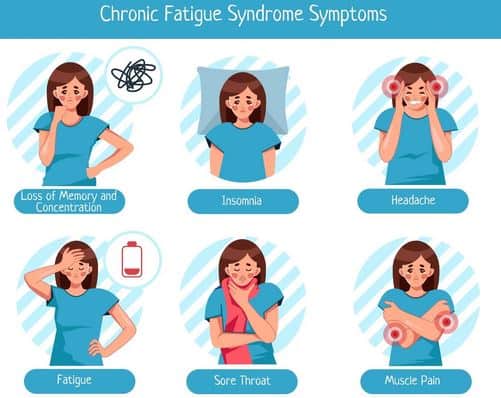Scientists have discovered a biological cause for chronic fatigue syndrome, which affects millions of people worldwide.
The condition, once dismissed by some as being psychological, has now been linked to specific genes.
More specifically, scientists identified six genetic markers present in people with the condition but absent in those without it.

The recent study, conducted at the University of Edinburgh, provides the first evidence that inherited genes may influence a person’s risk of developing the condition, also known as myalgic encephalomyelitis.
Professor Chris Ponting, who led the study, called the findings “a wake-up call,” noting that the eight identified genetic signals help explain why infections often trigger chronic fatigue syndrome and why those affected frequently experience pain.
For the new study, one of the largest ever conducted on the disease, scientists examined DNA from over 15,000 people with chronic fatigue syndrome.

Among the eight DNA regions where differences were found, researchers identified genes connected to the nervous and immune systems.
At least two of the newly discovered signals are tied to how the body responds to infection.
This may help explain why earlier studies found that people infected with COVID-19 are up to seven times more likely to develop chronic fatigue syndrome, a condition that shares many symptoms with Long Covid.
ChatGPT said:
Currently, there is no diagnostic test or cure for the disease, which is estimated to affect more than 67 million people worldwide.
In the UK alone, more than 404,000 people are believed to be living with the condition, most of whom are women.
Notable figures with the condition include comedian Miranda Hart, who shared in her recent autobiography that the illness left her “bed-bound.”

One of the main features of chronic fatigue syndrome is post-exertional malaise – that is, worsening of symptoms after mental or physical activity.
It typically begins 12-24 hours after the activity and, depending on the individual, can last for a few days or weeks.
Sonya Chowdhury, the Chief Executive of Action for ME, a UK-based organization dedicated to supporting individuals with the condition, described the findings as “groundbreaking.”
She added that the findings provide validation for those living with the condition, many of whom have been told by others that the illness doesn’t actually exist.








